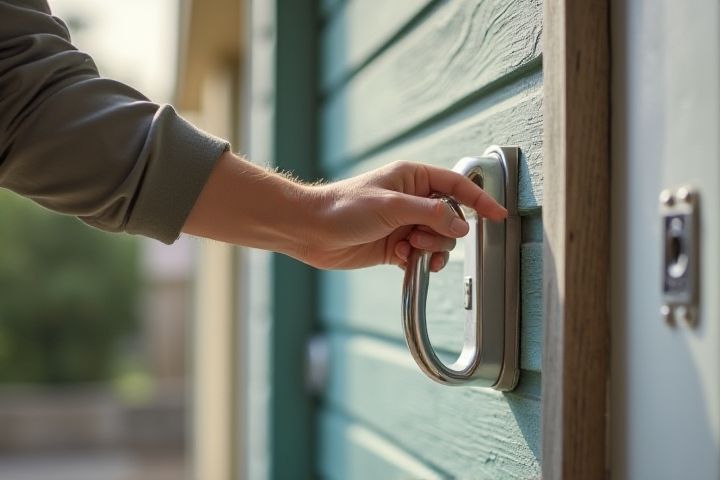
House inspections are vital in the home-buying process as they uncover potential issues that could lead to costly repairs in the future. A qualified inspector evaluates critical components of a property such as the roof, plumbing, electrical systems, and structural integrity. This thorough assessment provides you with a comprehensive understanding of your prospective home's condition. By identifying problems early, you can negotiate repairs or reduce the purchase price, ensuring a sound investment. Ultimately, a house inspection minimizes the risks associated with buying a home, giving you peace of mind.
Why House Inspections Are Crucial
Identify Structural Issues
House inspections are essential for identifying structural issues that can compromise the safety and integrity of your home. A thorough inspection examines critical components like the foundation, framing, and roofing, with an estimated 30% of homes displaying some level of structural deficiency. Detecting problems early, such as cracks in walls or uneven floors, can save you thousands in repairs later, with average costs for major structural repairs ranging from $1,500 to $4,500. Investing in a professional house inspection not only safeguards your investment but also ensures peace of mind for you and your family.
Assess Safety Concerns
House inspections play a pivotal role in identifying potential safety concerns that may pose risks to your well-being. Inspectors evaluate structural integrity, electrical systems, plumbing, and roofing, which are critical components in ensuring a safe living environment. For instance, outdated wiring can lead to electrical fires, while hidden mold can trigger health issues. Prioritizing a thorough inspection allows you to address these issues proactively, thereby safeguarding your investment and enhancing your family's safety.
Evaluate Electrical Systems
Evaluating electrical systems during a house inspection is essential for ensuring safety and functionality. Inspectors assess the wiring, outlets, and circuit breakers to identify any outdated or faulty components that could pose fire hazards or disrupt power supply. A thorough inspection can reveal hidden issues such as overloaded circuits or improper grounding, which can lead to costly repairs if left unaddressed. By prioritizing this evaluation, you safeguard your home and reduce the risk of electrical malfunctions in the future.
Check Plumbing Systems
House inspections are essential for assessing the condition of plumbing systems, as they identify potential issues like leaks, corrosion, and improper installations. A thorough examination ensures that pipes, faucets, and water heaters are functioning correctly, preventing costly repairs in the future. Inspectors evaluate water pressure and drainage capabilities, which can significantly impact your home's overall water efficiency. By prioritizing plumbing inspections, you can enhance your home's longevity and safeguard your investment.
Detect Pest Infestations
House inspections play a vital role in detecting pest infestations that can cause significant structural damage and health issues. Termites alone cause billions of dollars in damage annually, making early detection essential to mitigate repair costs and protect your investment. Inspectors typically identify signs of pests like droppings, damage to wood, or nests, ensuring you are aware of any threats before finalizing a property purchase. By prioritizing regular inspections, you can safeguard your home, maintaining its value and safety for years to come.
Validate Renovation Needs
House inspections are essential for validating renovation needs, ensuring that any necessary repairs are identified before you invest in property upgrades. By uncovering hidden issues such as structural damage, electrical hazards, or plumbing problems, a professional inspection provides a comprehensive assessment of the property's condition. This insight allows you to prioritize renovations based on urgency and budget, ultimately saving you time and money. Understanding the current state of your home empowers you to make informed decisions about potential improvements that enhance safety, efficiency, and property value.
Ensure Legal Compliance
House inspections ensure legal compliance by identifying potential violations of local building codes and regulations, which can save you from costly legal disputes or fines. Approximately 15% of homes reveal significant issues related to compliance during inspections, indicating the importance of being proactive. Real estate transactions may require proof of compliance with specific laws, and an inspection can provide the necessary documentation. By securing this vital information, you protect your investment and ensure a smoother transaction process.
Facilitate Negotiations
House inspections are essential as they provide critical information about a property's condition, potentially revealing issues that could impact its value. With around 20% of homes exhibiting hidden problems, having a thorough inspection allows you to negotiate repairs or price adjustments effectively. Additionally, a detailed inspection report can serve as a valuable bargaining tool during negotiations, leading to better outcomes for both buyers and sellers. By understanding the home's true condition, you can make informed decisions that protect your investment.
Long-term Investment Protection
House inspections are essential for safeguarding your long-term investment, potentially saving you from costly repairs that could arise from hidden issues. In fact, approximately 30% of homebuyers uncover significant problems during inspections, such as structural damage or plumbing failures, which can lead to expenses exceeding $10,000. By identifying these issues early, you have the leverage to negotiate repairs or adjust your offer price, ensuring that your investment remains sound. A thorough inspection not only protects your financial interests but also gives you peace of mind, knowing that your home is a safe and secure environment for years to come.
Peace of Mind
House inspections provide essential peace of mind by ensuring that your potential home is safe and structurally sound. During a house inspection, trained professionals thoroughly evaluate critical components such as the roof, electrical systems, plumbing, and HVAC, identifying potential issues that could lead to costly repairs. When you invest in a house inspection, you gain valuable insights about the property, empowering you to make informed decisions and negotiate repairs or price adjustments. By prioritizing a comprehensive house inspection, you safeguard your investment while ensuring that your new home meets safety and comfort standards.
